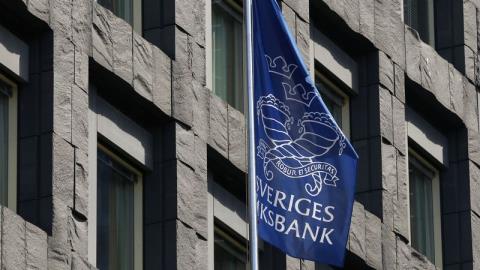Sweden’s Riksbank is warning banks about the possibility of regulation to ensure businesses retain access to cash services.
In a written response to an inquiry from Sweden’s Ministry of Finance regarding cash availability, the central bank emphasized, “Regulation is needed to ensure that operators, who are legally obliged to accept cash, have access to functioning services for daily takings and petty cash.”
Known as the world’s first near-cashless society, many banks in Sweden have largely ceased offering cash services to businesses. Currently, cash-in-transit company Loomis AB is the primary provider of such services, operating solely on a commercial basis. The Riksbank argues that banks must shoulder greater responsibility to ensure ongoing access to these services, which are crucial in the event of digital payment system failures.
While there are existing legal requirements for certain banks to facilitate company and public authority deposits of daily takings to an adequate degree, the Riksbank insists these regulations need to be tightened and clarified as current bank offerings are deemed “inadequate.”
Banks have tended to respond to these obligations by installing deposit machines with limits that are often too low for many businesses, according to the central bank. The Riksbank also stresses the need for immediate action to restore access to petty cash, noting that the decline in such services has intensified as banks have increasingly closed manual cash operations.
“The measures we propose in our written communication are essential for enabling those who need to use cash to do so, and to enhance our civil preparedness regarding payments,” states Christina Wejshammar, head of the payments department at the Riksbank. “Many businesses continue to accept cash, but without adequate services, they would struggle to do so. Moreover, if new obligations arise for operators selling essential goods to accept cash, services for daily takings and petty cash must remain available across the country. This way, banks can support a functioning cash chain under normal circumstances and during crises.”
